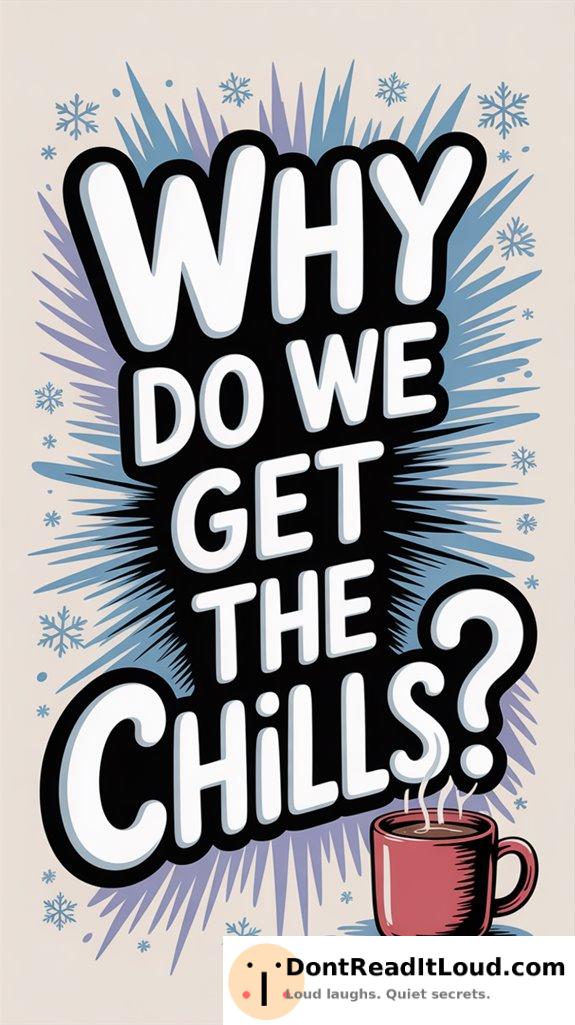
You get chills when nerves and muscles respond to changes in temperature, strong emotions, or deep-rooted reflexes from our ancestors. Your skin senses cold or excitement and sends signals that trigger muscle contractions and goosebumps. These responses help you feel warmer or amplify emotional experiences. Sometimes, a powerful memory or a movie scene sparks a sudden shiver. Discover more about these intriguing body reactions.
The Physiology of Chills
When your body feels a sudden chill, it’s responding to various physiological triggers. Picture your skin as the world’s most dramatic weather forecaster. Your skin senses the cold or fear, setting off nerves that act like tiny alarm bells. These nerves prompt your muscles to contract—hello, goosebumps! It’s like your body pops up a quick layer of insulation.
Your nerves send urgent messages to your brain about the chill. They’re basically saying, “There’s something happening here!” This nerve activity helps your body adjust its internal temperature.
The Role of Emotions and Memories
Your body’s response to chills isn’t just about temperature regulation; emotions and memories play a significant part too.
Ever heard that spine-tingling song or watched a movie scene so intense your skin turned into a goosebump festival? That’s your emotions and memories teaming up to create a powerful reaction. It’s like your brain is hosting a highlight reel of your most moving and frightening moments.
When a strong emotion hits, your mind can instantly replay a memory, and you feel chills racing down your spine. Whether it’s a heartwarming flashback or a sudden scare, your body reacts to your brain’s dramatic cues.
Sometimes, your own memories bring more thrills than any scary movie.
Evolutionary Perspectives on Goosebumps
Fast forward to today, and your biggest threat might just be an unexpected office presentation, but your body still holds on to these ancient reflexes.
Who knew that getting goosebumps could be your body’s quirky way of saying, “Back off!”?
Environmental and External Triggers
Although it may seem surprising, environmental and external triggers play a significant role in why you experience chills. One moment, you’re enjoying the sunshine; the next, you’re shivering as if caught in a sudden cold snap. Sudden temperature changes can quickly disrupt your sense of comfort.
It’s not just the weather, either—exciting or suspenseful moments, like a tense movie scene, can also send a chill down your spine. Your body reacts to these unexpected cues with a quick shiver as a warning signal.
Conclusion
You’ve learned how chills are triggered by the body’s responses to temperature, emotions, and memories. Goosebumps may have served as an evolutionary survival tool. Different environmental and psychological factors can also cause chills. The next time you feel a shiver, you’ll recognize it as a fascinating mix of biology, emotion, and your surroundings—highlighting the complexity of your body and mind.



